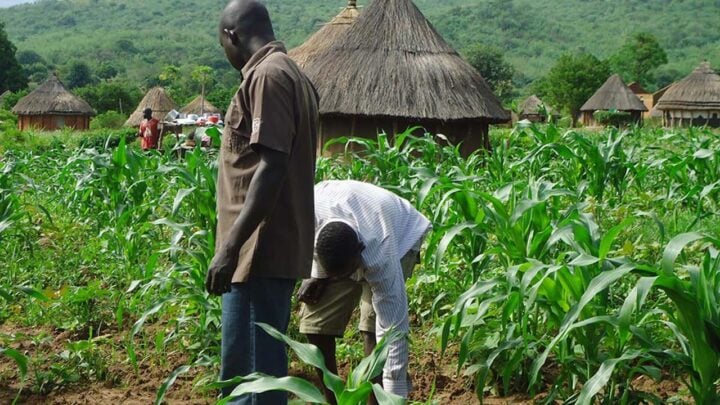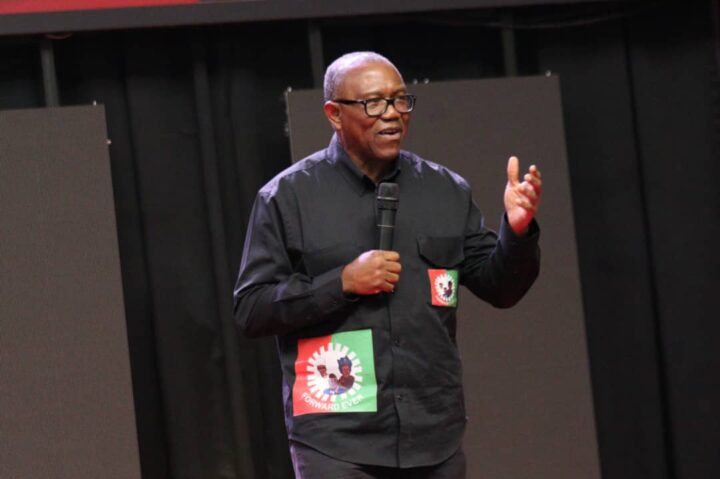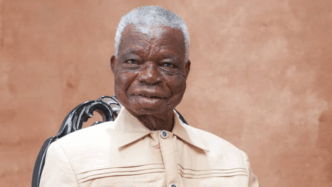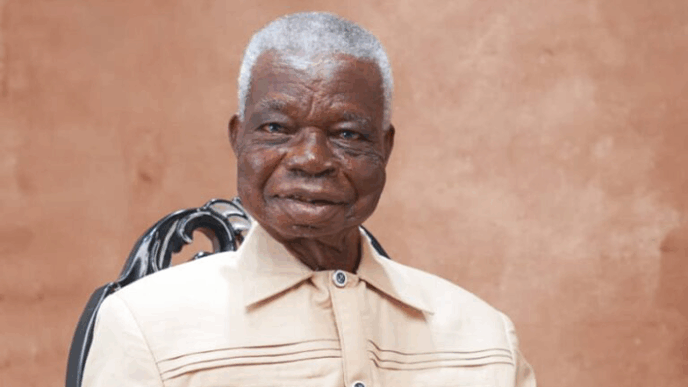In his book, “Essentials of Rural Sociology”, published in 1992, Gboyega Jibowo described “Rural development” as “the process of integrating the rural economy into the national economy”. In his view, it’s about systematically bringing rural areas into the broader national socio-economic framework. It is also about, closing the gap between the village and the city, and ensuring that rural communities aren’t economic islands but active participants in national growth and development. In such a situation, it would be a win-win for the two economic frontiers, because of their interdependence. Their respective vibrancy is interdependent and mutually reinforcing.
No economy grows in a vacuum. Just as a building draws strength from its foundation, so too does a national economy rest on the vibrancy of its local and rural economic structures. In Nigeria, the rural economy, often dismissed as rustic and peripheral, is, in fact, the heartbeat of national productivity. It is the substructure on which the superstructure rests. It feeds the cities, supplies raw materials to factories, sustains informal employment, and anchors cultural and social cohesion.
But, in Nigeria currently, this heart is under siege. Across the countryside, violent conflicts, banditry, kidnappings, and communal clashes have turned once-thriving farmlands and marketplaces into ghost towns. From Zamfara to Benue, to Plateau, to Katsina, and even Kwara State (the much-touted State of Harmony), insecurity has strangled agricultural output, disrupted trade networks, discouraged investment, and forced rural dwellers into a life of fear and flight.
Meanwhile, rural Nigeria accounts for the majority of the country’s agricultural output, mineral resources, and labor force. Over 40.9 million households depend on farming, contributing significantly to GDP and employment. However, insecurity (ranging from armed attacks resulting from competition for grazing and crop rearing spaces to land disputes between crop farmers and herders) has disrupted this foundation.
Advertisement
Following from the above, food production has come under threat. For instance, in 2025 alone, violent clashes in Benue and Plateau States have displaced thousands of farmers, leading to shortages in food production and consequent food inflation at 21.79% and worsening hunger.
There is no denying the fact that agriculture depends on stability. Nigeria’s food security is hinged on farmers’ ability to cultivate and transport goods safely. Attacks on farming communities, like the Odugbeho Massacre (2016 in Agatu LGA of Benue State), “Igangan massacre” (2021 in Ọ̀yọ́ State), Yelwata, and Mangu killings (both in 2025 in Benue and Plateau State, respectively), destroy crops, livestock, and infrastructure, disrupting supply chains would definitely spike food inflation. When rural insecurity rises, urban markets face shortages, and the national economy suffers. In Kwara State presently, a town called Babanla in the Ifelodun local government area about 4 days ago came under sustained attacks by bandits. This leaves the residents with no option but to flee, leaving behind their house and other valuable belongings, including their livelihood. They’re currently taking refuge in God-knows-where, while their ancestral town remains a ghost town.
This is more than a security problem—it is an economic crisis in disguise. Your guess is as good as mine, as far as their farmland and crops are concerned. The effects of that will tell on the prices of food in the State in the next 6 months or thereabout.
Advertisement
According to Nigeria’s National Bureau of Statistics (NBS), over 70% of the population lives in rural areas, and agriculture, mostly rural-based, accounts for approximately 24% of the country’s GDP. Rural Nigeria produces the bulk of the country’s food and contributes massively to internal trade and informal sector employment. From yam barns in Benue, to rice paddies in Kebbi, to cassava farms in Abia, to pineapple plantations in Delta, the rural economy has long been the unsung engine of Nigeria’s growth. But like any engine, it needs fuel, and that fuel is security—badly needed but sadly lacking.
The rise of rural insecurity has led to:
Displacement of farmers and herders, thousands of whom have fled their communities, abandoning farmlands mid-planting or pre-harvest. The result? Food shortages and inflation.
Disruption of rural markets: Local economies thrive on weekly markets. When roads are unsafe, traders stay away, and entire micro-economies collapse. There would therefore be no base for the suprrstrcture, which is the national economy, to rest and thrive.
Advertisement
Loss of investor confidence: developmental projects, both public and private, are increasingly shelved in high-risk areas. No investor brings his money to an unsafe environment for investment. It would be water down the drain.
Rural-to-urban migration: As insecurity grows, young people abandon farms for motor parks, adding to urban unemployment and slum proliferation. It also piles more pressure on the already inadequate social amenities in the urban centres.
However, when security walks in, prosperity follows. It is not just about the absence of violence; it is the presence of order, trust, and the freedom to produce and trade without fear. In practical terms:
Secure communities encourage productivity: A safe village can plan its planting and harvesting seasons with predictability. Not in a situation where a Bello Turji is breathing down their necks. Not where the fear of the “Unknown Gun Men” is the beginning of wisdom; not where farmers sleepwalk into the waiting arms of kidnappers; not where marauding herders are lurking in a corner of the forest, waiting for the farmer to leave for home after a hectic day, so they could unleash their cattle, and raze the crops in a matter of minutes.
Advertisement
Rural credit systems thrive when security is stable: No lender wants to fund a farm that might be raided before harvest.
Infrastructure investments are more viable: Investors and NGOs can only operate in areas where their staff and assets are safe.
Advertisement
Women and youth empowerment schemes gain traction: In safe environments, these groups can take economic risks, explore entrepreneurship, contribute their quotas to the country’s Gross Domestic Product (GDP), and break the vicious intergenerational cycle of poverty in the process.
Policy Prescriptions: Rural security as a national strategy flows from an understanding and an appreciation of the nexus between the three phenomena—security, rural economy, and national economic prosperity.
Advertisement
“Rural Development” experts, have always recommended the integrated approach to implementing rural development programmes, like we had it under Babangida’s Mass Mobilization for Self Reliance, Social Justice, and Economic Recovery (MAMSER), the Directorate of Food, Roads, and Rural Infrastructures (DIFRRI), among others, and currently, the Rural Access and Agricultural Marketing Project (RAAMP). Implementing rural development programmes in isolation would amount to a total waste of time and resources, as there would be no synergy and effective coordination for the attainment of its goal and objective. A critical look at each of these programmes mentioned above, would reveal some elements of multi-sectoralism. But there is something missing in each one of the programmes. That thing is is “Rural Security”. It was missing then, not because the masterminds were not smart enough to appreciate and include it then, but just that, there was absolutely no need for it then, as the rural settlements existed then, in their pristine form. But now there is so much need for it that no other element would work or yield the needed result unless it is included and given utmost priority.
To reverse, or at least, stem the tide, Nigeria must treat rural security as a foundational pillar of national economic planning, with a particular focus on the rural settlements across the country, considering their prominence on the value chain. It must be done using the following strategies:
Advertisement
Deploy community-based security frameworks, integrating local vigilante groups with formal security agencies for intelligence gathering and swift response.
Invest in rural infrastructure, especially roads, health centres, and schools, to attract and retain population and economic activity.
Adopt technology-driven agriculture surveillance systems, including drones and mobile alert platforms.
Promote land reforms to clarify land use rights and reduce farmers-herders conflict. Perhaps, encourage the culture of ranching among the herders community.
Create agro-security hubs, combining military outposts and forest guards (or Rangers—whatever nomenclature by which they may go) with agricultural extension services in vulnerable zones.
One does not need to be Albert Einstein to figure out the nexus between security in rural areas and socio-economic stability. The survival and growth of Nigeria’s economy depend, therefore, not just on macroeconomic policies crafted in Abuja but also on the strength and stability of the rural economies in Babanla, Odugbeho, Igangan, Otukpo, Daura, Gwoza, Yelwatta, Igbo-UK wù, Mangu, and villages in the North Western States of Kebbi, Zamfara, Sokoto, and Katsina. To ignore the countryside is to sabotage the nation’s economy at its roots.
If we sincerely desire national development, the choice is clear: secure the rural areas, or prepare to reap the whirlwind of systemic economic failure. Because if the farms are deserted, the cities will go hungry, and the national economy will take a hit. Unfortunately, as lately as the last weekend, gunmen still killed people in Yelwata in Benue State, meaning the villages are not yet safe for farming, as no one knows when next the assailants will come, bearing woes to be unleashed against the residents.
Setting a development agenda for the nation is not just about speaking “Dogo ń Turenchi”; it’s about calling a nation to action. Let’s act now, while we still have fields to till and futures to build. Let those at the helm of affairs appreciate the fact that security, not only at the Federal Capital Territory or State capitals and other urban centres, but also in the rural settlements, is key to achieving steady socio-economic growth that positively impacts the quality of life. That will also strengthen the national economy.
Abubakar writes from Ilorin, Kwara state. He can be reached via 08051388285 or [email protected].
Views expressed by contributors are strictly personal and not of TheCable.











